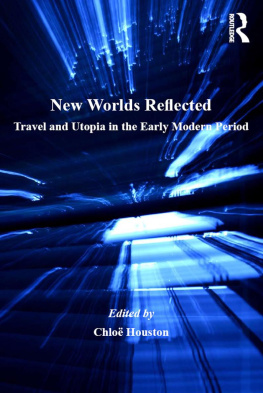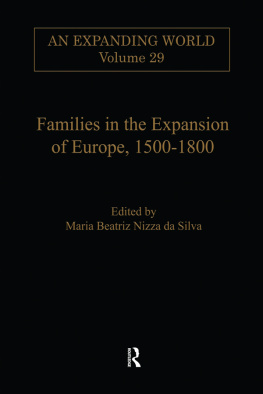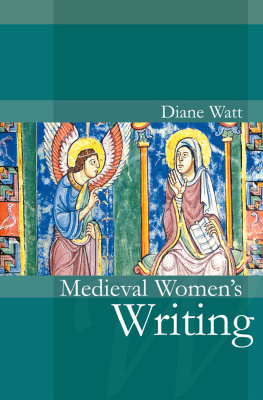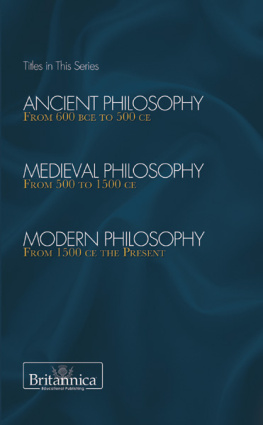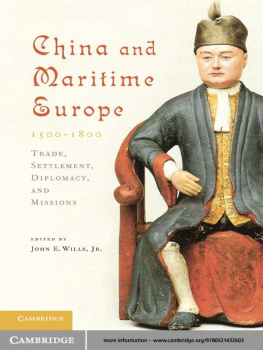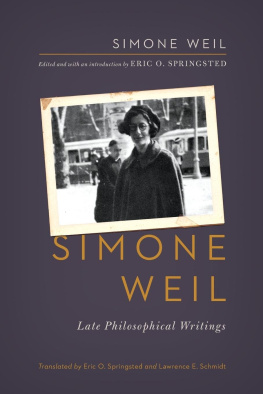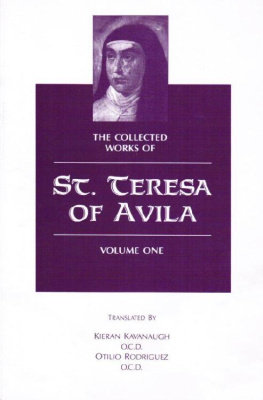
Womens Writings on Christian Spirituality
EDITED BY MOLLY HAND

DOVER PUBLICATIONS, INC.
Mineola, New York
DOVER THRIFT EDITIONS
GENERAL EDITOR: MARY CAROLYN WALDREP
EDITOR OF THIS VOLUME: ALISON DAURIO
Copyright
Copyright 2013 by Dover Publications, Inc.
All rights reserved.
Bibliographical Note
Womens Writings on Christian Spirituality, first published in 2013, contains a new selection of works made by Molly Hand, who also provided the biographical information which precedes each chapter.
International Standard Book Number
eISBN-13: 978-0-486-32112-7
Manufactured in the United States by Courier Corporation
48445901 2013
www.doverpublications.com
Introduction
Women writers are being read and studied now more than ever. Our understanding of the history of Christian spiritual texts is complicated and amplified by our increasing knowledge of womens roles in that history. While the writings included here are as diverse as the historical contexts in which they emerged, it is also possible to trace textual and spiritual relationships among these works and their authors. This volume provides an entry point to readers new to the history of womens spiritual writing as well as a site of further exploration for readers already familiar with some of these writers.
This is a historical anthology of womens religious writing. It begins with writings from the early church, including selections from Perpetua, Paula, and Dhuoda, and continues through the medieval (11001500) and early modern (15001800) periods, into our current era. Though these selections merit study within their contexts, one need not be a historian, literary scholar, or theologian in order to appreciate the strength of Kassias writings, the subtlety of Julian of Norwichs theology, or the political daring of Anna Trapnels prophecies. A brief preface to each of the selections below provides a biographical sketch as well as a sense of context for the passage.
What do these women have in common? What do these selections have in common? In some ways, the answer to both questions is very little. The sweep of history, from Perpetuas experience as a martyr in the early church to Anne Lamotts journey raising her son in the California Bay area, is vast, as is the geographical scopefrom Constantinople and Bethlehem to France, Sweden, and the United States. What could Kassia possibly have in common with Nancy Mairs, or with Aemilia Lanyer?
In our postmodern era, we understand that women are not the weaker sex, do not share inherent perspectives, innate feminine characteristics, or some built-in womanly notions by sheer virtue of being women. Peoples perspectives, their experiences as gendered beings, and their abilities to read, write, or speak in any given context are all culturally determined. Encountering the itinerant prophesying visionary woman Margery Kempe would have been much stranger for her contemporaries in the late fourteenth century than it would have been for Londons citizens to hear Margaret Fell Fox preaching two centuries later. Cultural context determines reception, as well as the ability to be read or heard in the first place. Phillis Wheatleys ability to publish her work and have it received by a broad audience required that she have white patrons offering their approbation in writing; her experience of public writing was mediated because of race. Other women, like Anna Trapnel, Angela of Foligno, and numerous others, told their spiritual narratives and visionary experiences to a male confessor or amanuensis. Yet, however mediated these texts may be, one way or another, these women writers overcame barriers of gender, class, race, geography, and moreand conveyed, in writing, their remarkable voices and experiences.
Perhaps this overcoming of obstacles is what creates the connections that, despite the irretrievable differences among these women and their contexts, exist among their texts. What Kassia, Nancy Mairs, and Aemilia Lanyer have in common is their defense of women, their questioning of the patriarchal structure of the church and the broader culture, their critique of misogynistic views that were, if not espoused, then underwritten, by church doctrine and dominant culture more broadly. As many women in this volume expressed outrage at male-dominated societys injustices towards women, so, we must also remember, were many of these women aided and supported by male members of their religious communities. Though several authors included here were enclosed or secluded in the cloister, many of these women did not enter convents, joining lay religious communities instead. Though they may each have had different reasons for joining lay orders, they were afforded greater agency and the ability to be active in their communities in ways that nuns could not be. Beguines, like Mechthild of Madgeburg and Hadewijch of Brabant, formed their own lay spiritual communities in Europe; Catherine of Siena and Angela of Foligno were in Dominican and Franciscan Third (lay) Orders, respectively. Some of these women were powerful indeed. Catherine and Birgitta of Sweden became advisors to popes and powerful clergy. Anna Trapnel almost certainly inspired a degree of discomfort, if not fear, in the heart of Oliver Cromwell.
Just as fascinating as these diverse situations by which women entered religious communities and the public sphere of letters, are the direct connections among some of these writers. To mention only a few, Margery Kempe admired Birgitta of Sweden and visited Julian of Norwich. Flannery OConnor praised Simone Weil. Quaker women Katharine Evans and Margaret Fell Fox were contemporaries. Gertrude the Great resided at the same convent at Helfta where Mechthild of Madgeburg spent her later years finishing Book 7 of The Flowing Light of the Godhead. Elisabeth of Schnau sought the approval of and exchanged letters with Hildegard of Bingen. Textually, spiritually, and historically intertwined, the writers and texts in this volume offer us a glimpse of a vast transhistorical community that defies contexts, orthodoxies, and expectations.
The selections that comprise this collection exemplify each writers style and voice. I have included selections less frequently anthologized in order to provide readers a fresh look at some writers whose work is often anthologized, and I have included selections from writers that have not yet been included in historical anthologies of womens spiritual writings. I hope these selections will serve as a starting point for many readers, because there is so much more to read than the small space of this book can contain.
I was introduced to a number of these texts by Nancy Bradley Warren when I was working on my doctoral degree in English literature; my interest in womens spiritual writing of the medieval and early modern eras was sparked by our readings and discussions in her class. I hope this volume will bring these women writers to the attention of new readers who will find inspiration in their distinctive voices, styles, theologies, strength of spirit, and political outspokenness.
MOLLY HAND, Editor
Table of Contents
Perpetua
(d. 203)
Perpetua was a third-century martyr, whose travails are recorded in The Passion of St. Perpetua. Perpetua dictated her account, which was then commented upon and edited by Tertullian. Like several other women whose work is included in this volume, Perpetua channeled the spirit of God, experienced visions, and suffered persecution (and ultimately execution) for her beliefs. Her experiences are mediated through a male author/editor, but as with many of her later counterparts, it is possible to hear a compelling individual voice bodied forth from this account.
Next page

